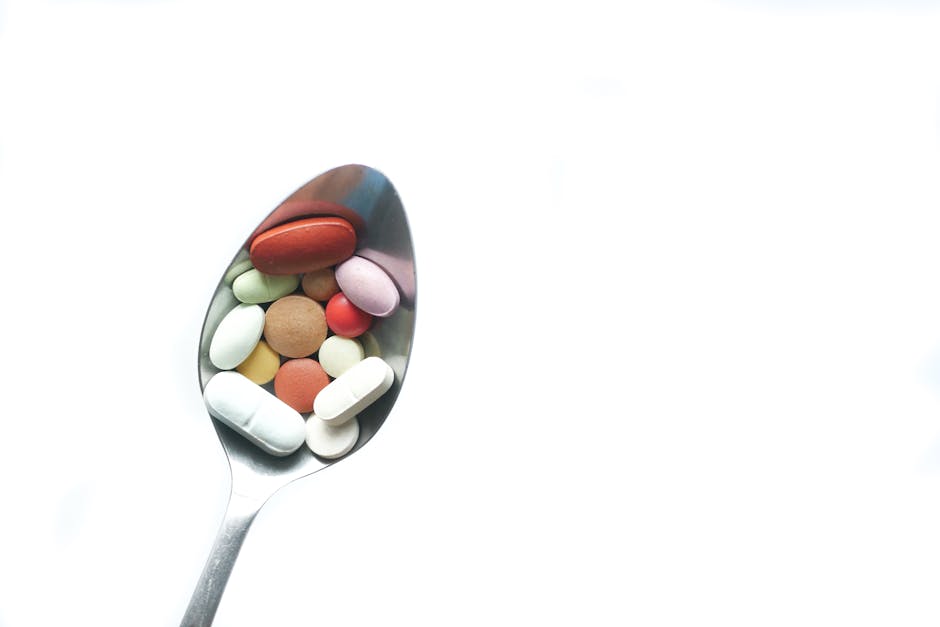Zinc: The “Immune-Booster” Mineral (Benefits, Sources, Dosage) Guide
In the vast landscape of essential nutrients, one tiny mineral consistently stands out for its monumental impact on our health: Zinc. Often hailed as the “immune-booster” mineral, zinc plays a far more extensive role in keeping our bodies running optimally than many realize. From fighting off pesky colds to helping wounds heal and even influencing our senses of taste and smell, zinc is a true unsung hero.

But what exactly is zinc, why is it so crucial, and how can you ensure you’re getting enough without overdoing it? This comprehensive guide will delve deep into the world of zinc, covering its incredible benefits, the best food sources, proper supplementation, and crucial dosage information. Get ready to unlock the power of this vital essential mineral and supercharge your well-being!
What Exactly Is Zinc and Why Is It So Important?
Zinc is a trace mineral, meaning our bodies only need it in small amounts. However, don’t let its “trace” status fool you – its importance is anything but small. Zinc is involved in over 300 enzymatic reactions, making it fundamental for countless biological processes. It’s found in every cell of your body and is critical for cell growth and division, DNA synthesis, protein production, and maintaining a healthy metabolism.
Think of zinc as a master key for your body’s cellular machinery. Without it, many essential functions would grind to a halt. While its role in boosting your immune system often takes center stage, its contributions to overall health extend much further, impacting everything from your vision to your reproductive health.
The Powerhouse Benefits of Zinc: More Than Just Immunity
When we talk about Zinc: the “immune-booster” mineral, we’re only scratching the surface. Its benefits ripple through nearly every system in your body. Let’s explore some of its most impactful roles:
Zinc and Your Immune System: The Ultimate Defender
This is where zinc truly shines. It’s absolutely vital for the proper functioning and development of immune cells. Zinc helps activate T-lymphocytes (T-cells), which are crucial for fighting off infections. It also plays a role in the production of cytokines, signaling proteins that regulate the immune response.
Studies have shown that adequate zinc intake can reduce the duration and severity of the common cold, especially when taken within 24 hours of symptoms appearing. It helps strengthen your body’s defenses, making it harder for pathogens to take hold and easier for your system to recover.
Wound Healing and Skin Health
Got a cut that’s taking forever to heal? Zinc might be the missing link. It’s essential for cell proliferation and collagen synthesis, two processes fundamental to wound repair. It also possesses anti-inflammatory properties that can soothe irritated skin.
For those struggling with acne, eczema, or other skin conditions, zinc’s ability to regulate oil production, reduce inflammation, and promote cell regeneration can be a game-changer for achieving healthy skin.
Antioxidant Properties
Zinc acts as an antioxidant, helping to protect your cells from damage caused by free radicals. Free radicals are unstable molecules that contribute to aging and various chronic diseases. By neutralizing these damaging agents, zinc contributes to cellular health and longevity.
Cognitive Function and Mood
Emerging research suggests zinc’s importance for brain health. It plays a role in neurotransmitter function and nerve signaling. Some studies indicate a link between zinc levels and cognitive function, memory, and even mood regulation, with deficiencies potentially contributing to feelings of anxiety or depression.
Taste and Smell
Ever noticed a metallic taste or a diminished sense of smell? Zinc deficiency can be a culprit. Zinc is crucial for the function of gustin, a protein vital for taste bud development and repair. It’s also involved in enzymes necessary for olfactory (smell) perception.
Reproductive Health
Zinc is indispensable for reproductive health in both men and women. In men, it’s vital for sperm production and testosterone levels. In women, it plays a role in egg development and maintaining hormonal balance, impacting fertility and healthy pregnancy outcomes.
Eye Health
Zinc is highly concentrated in the eyes, particularly in the retina. It helps transport Vitamin A from the liver to the retina to produce melanin, a protective pigment. Adequate zinc intake is associated with a reduced risk of age-related macular degeneration (AMD) and night blindness.
Are You Getting Enough? Signs of Zinc Deficiency
Despite its critical roles, zinc deficiency is more common than you might think. Certain groups are particularly at risk, including vegetarians, vegans (due to lower bioavailability from plant sources), pregnant and lactating women, the elderly, and individuals with chronic digestive issues.
Common signs of insufficient zinc include:
- Frequent infections and a weakened immune response
- Slow wound healing
- Hair loss or thinning
- Loss of appetite
- Changes in taste or smell
- Skin lesions or acne
- Diarrhea
- Impaired growth in children
If you suspect a zinc deficiency, it’s always best to consult a healthcare professional for proper diagnosis and guidance.
Where to Find Your Zinc: Top Food Sources
The best way to ensure adequate zinc intake is through a balanced diet. Fortunately, many delicious foods are packed with this essential mineral.
Animal-Based Sources (Highest Bioavailability)
- Oysters: Hands down, the richest source of zinc. Just a few can meet your daily needs.
- Red Meat: Beef, lamb, and pork are excellent sources.
- Poultry: Chicken and turkey, especially darker meat.
- Dairy Products: Milk, cheese, and yogurt contain a decent amount.
- Eggs: A good source of various nutrients, including zinc.
Plant-Based Sources
While plant-based sources generally have lower bioavailability due to compounds like phytates (which inhibit absorption), they can still contribute significantly to your zinc intake, especially if consumed strategically.
- Legumes: Chickpeas, lentils, and beans. Soaking and sprouting can improve absorption.
- Nuts and Seeds: Pumpkin seeds, cashews, almonds, and hemp seeds are particularly good.
- Whole Grains: Oats, quinoa, and brown rice.
- Certain Vegetables: Potatoes, mushrooms, and spinach.
- Fortified Cereals: Some breakfast cereals are fortified with zinc.
For those following a plant-based diet, combining zinc-rich Categories Nutrition & Diet
